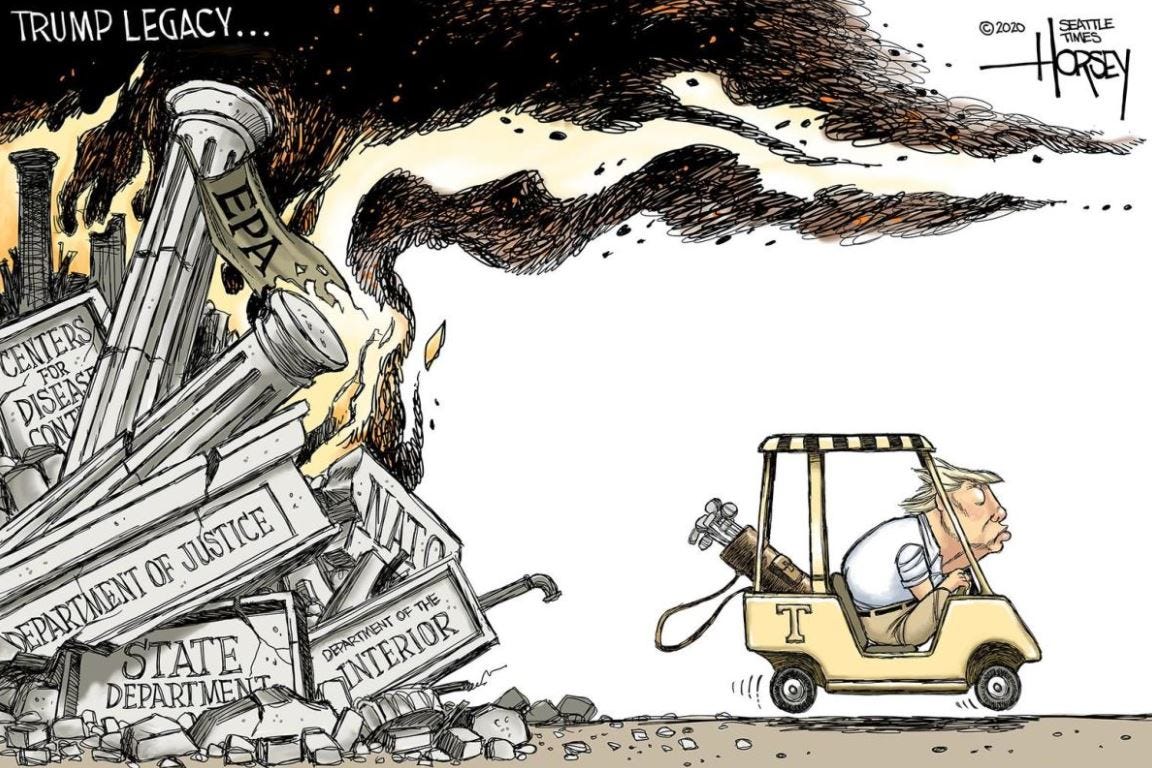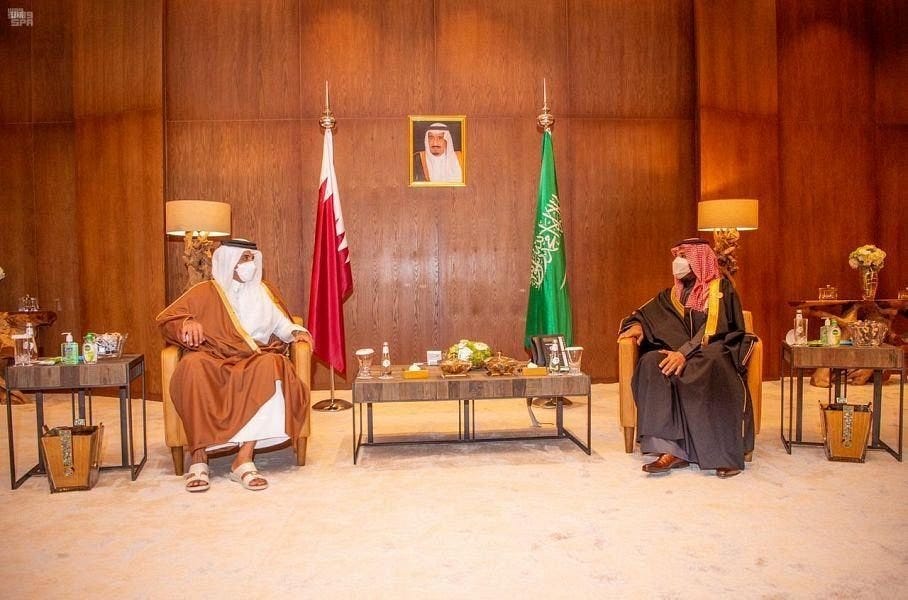US Capitol attack, mass arrests in Hong Kong, Persian Gulf politics and the power of pets
4 - 10 January 2021
What a wild week!
THE DIVIDED STATES OF AMERICA
Geopolitical consultancy Eurasia Group published its list of the top risks for 2021 last Monday. At number one: the fierce dispute over the results of the recent US presidential election.
The analysts at Eurasia said "a superpower torn down the middle cannot return to business as usual". They noted that Joe Biden's term opens the era of "the asterisk presidency", where the Oval Office occupant is seen as illegitimate by roughly half the country.
Well their assessment turned out to be oddly prescient. On Wednesday, jaws dropped around the world when a violent mob of pro-Trump supporters stormed the Capitol complex. They interrupted the certification of Biden's win by Congress - and pulled focus from the Democratic triumph in Georgia's Senate race.
The scenes were chaotic and alarming, prompting condemnation from numerous heads of government along with Fortune 500 CEOs. Twitter and Facebook swiftly suspended the president's accounts.
Although Trump grudgingly criticised the attack and finally conceded, he maintains that the 3 November ballot was "stolen" and fraudulent. He also said he would not be attending the inauguration on 20 January.
Unfortunately, the toxic rhetoric and animosity won't disappear with 45's dramatic exit from the White House. Trumpism brought attention to the destructive divisions in US society. These forces were often nurtured by senior Republican figures, such as Mitch McConnell, Lindsey Graham and Ted Cruz.
Of course, the mayhem in Washington gave ministers in China, Iran and Russia the perfect opportunity to mock American exceptionalism and liberal democracy. It's juicy fodder for their propaganda machines.
As for the other risks cited in Eurasia's report, the effects of long Covid, uncoordinated climate change action, deteriorating US-China relations, ownership of data flows and Angela Merkel's upcoming retirement are mentioned as pressing concerns.
A POLITICAL PURGE
Speaking of China, a sweeping crackdown on Hong Kong's pro-democracy camp has shocked many in the territory and abroad.
Hundreds of HK police officers were deployed to arrest 53 prominent politicians, activists and lawyers in early morning raids on Wednesday. All but one of the suspects were released on bail the following day. Though members of the group have yet to be charged with an offence, they were still forced to surrender their passports, and some had their phones and computers confiscated as well.
The mass round-up was allowed under the controversial National Security Law, which was imposed by Beijing on 30 June last year. HK and mainland Chinese authorities used the law to accuse the cohort of "subversion" since they held a primary poll ahead of the September elections for the SAR's legislature.
Worth noting: primaries to determine a party's most popular candidates are standard procedure in democratic systems. However, HK police say the opposition were involved in a bigger plot to paralyse Carrie Lam's government.
Anyhow, Lam eventually postponed the citywide vote by 12 months on public health grounds - ignoring the fact that South Korea and Singapore managed to conduct safe elections when their Covid case counts exceeded HK's tally.
The arrests reiterate how the NSL's broad language can apply to any form of dissent and consequently stifle diverse voices. And while there was the usual chorus of disapproval from the United Nations, US and UK, the lack of serious pushback appears to have emboldened Beijing to keep tightening its grip on HK.
FROM FOE TO FRIEND?
Over in the Middle East, Saudi Arabia and three of its allies have decided to set aside their differences with Qatar.
This week, the UAE, Bahrain, Egypt and the kingdom agreed to revive trade and travel links with Doha, halting a three-and-a-half year blockade. The diplomatic breakthrough - mediated by Kuwait and the US - happened just in time for photo ops at Tuesday's Gulf Cooperation Council (GCC) summit in the Saudi city of Al Ula.
The reopening of borders is now complete - meaning residents in Dubai, for instance, will soon be able to hop on a direct 50-minute flight to Doha, avoiding the long layover at Muscat airport (Oman famously strives for neutrality in the region). Additionally, Qatar won't have to spend millions on re-routing its planes through Iranian airspace.
However, the smiles and optimism at the GCC meeting masked several thornier issues which could take months to resolve. The UAE, in particular, continues to strike a cautious tone, warning that trust-building is essential "to restore confidence". The reason for this wariness: the causes of the ideological rift haven't actually been addressed.
When the boycott was announced in June 2017, the Saudi-led quartet asked Qatar to abide by 13 demands. Reducing closeness with Iran; severing ties with the Muslim Brotherhood and its affiliates; terminating Turkey's military presence in the country; and shutting down Al Jazeera's news stations were all on the list.
But the Emir of Qatar refused to comply and he still hasn't made any significant concessions. International diplomats say Doha has successfully showcased its resilience and agility. Iran's foreign minister was quick to praise Qatar's "brave resistance to pressure & extortion" (while also telling its Arab neighbours that Tehran is "neither an enemy nor threat").
The latter statement may fall on deaf ears, though. It's widely believed that President Trump and Jared Kushner's imminent departure from the White House spurred Crown Prince Mohammed bin Salman to end the embargo. He reportedly wants to present a united GCC front to the incoming Biden administration, which he anticipates will be less accommodating of Riyadh's policies.
OUR FOUR-LEGGED FRIENDS
Pet care is a thriving multi-billion dollar industry - and the pandemic has only fuelled demand for furry (or even scaly) companions.
Pet adoption rates surged globally during last year's lockdowns as stuck-at-home humans sought cute and cuddly distractions. Naturally that led to a rise in purchases of pet food, toys and accessories, medicine and so on.
According to the American Pet Products Association, pet owners in the US splashed out an estimated US$99 billion on their "fur babies" in 2020 - the highest ever amount. The boom is certainly helping retailers like Chewy, which reported a 45% jump in third-quarter sales from the same period in 2019.
Savvy market analysts have repeatedly espoused the benefits of investing in pet-related companies. For one, pet care is recession-proof. People don't typically let their cats or dogs go without, even when times are tough. Secondly, nearly all demographic groups - including Boomers and Millennials - increased spending on their pets over the past five years.
That healthy appetite is encouraging Petco to return to Wall Street despite its previous exits and substantial debt load. The business plans to list on the Nasdaq under the ticker symbol WOOF.







